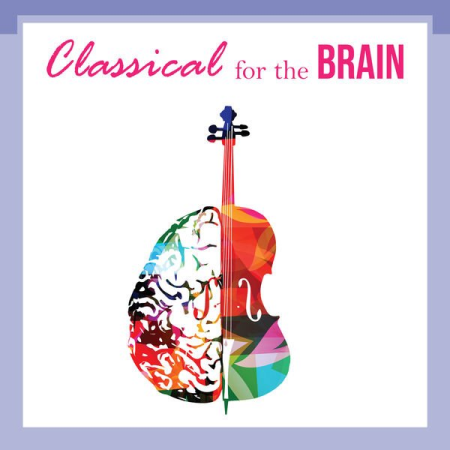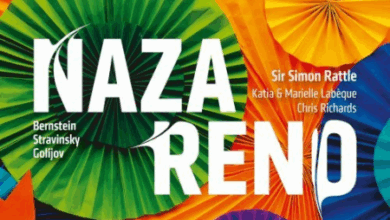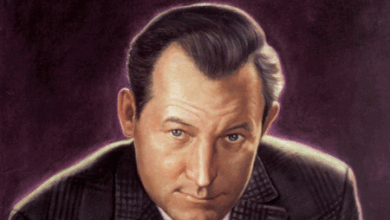VA — Brahms: Classical for the Brain (2022)

FLAC (tracks) / MP3 320 kbps | Classical | 17h 16 min | 4.03 / 2.3 GB
The stature of Johannes Brahms among classical composers is best illustrated by his inclusion among the \»Three Bs\» triumvirate of Bach, Beethoven, and Brahms. Of all the major composers of the late Romantic era, Brahms was the one most attached to the Classical ideal as manifested in the music of Haydn, Mozart, and especially Beethoven; indeed, Hans von Bulow once characterized Brahms\’ Symphony No. 1 (1855-1876) as \»Beethoven\’s Tenth.\» As a youth, Brahms was championed by Robert Schumann as music\’s greatest hope for the future; as a mature composer, Brahms became the most potent symbol of musical tradition for conservative musical journalists, a stalwart against the \»degeneration\» represented by the music of Wagner and his school.
Brahms\’ symphonies, choral and vocal works, chamber music, and piano pieces are imbued with strong emotional feeling, yet take shape according to a thoroughly considered structural plan. The son of a double bassist in the Hamburg Philharmonic Society, Brahms demonstrated great promise at a young age. He began his musical career as a pianist, contributing to the family coffers as a teenager by playing in restaurants, taverns, and even brothels. By his early twenties he enjoyed associations with luminaries like violinists Eduard Remenyi and Joseph Joachim, but the friend and mentor who was most instrumental in advancing his career was Schumann, who all but adopted him and became his most ardent admirer – their esteem was mutual. Following Schumann\’s death in 1856, Brahms became the closest confidant and lifelong friend of the composer\’s widow, pianist and composer Clara Wieck Schumann. After a life of spectacular musical triumphs and failed loves (the composer was involved in several romantic entanglements but never wed), Brahms died of liver cancer on April 3, 1897. In every genre in which he composed, Brahms produced works that have become staples of the repertory. His most ambitious work, the German Requiem (1863-1867), is the composer\’s singular reinterpretation of an age-old form. The four symphonies – lushly scored, grand in scope, and deeply expressive – are cornerstones of the symphonic literature. Brahms\’ concertos are in a similarly monumental, quasi-symphonic vein: the two piano concertos (1856-1859 and 1881), and the Violin Concerto (1878) call for soloists with both considerable technical skill and stamina. His chamber music is among the most sophisticated and exquisitely crafted of the Romantic era; his works that incorporate clarinet (e.g., the Trio in A minor, Op. 114 and the two Sonatas, Op. 120), the latter an instrument largely overlooked by his contemporaries – remain unsurpassed. Though the piano sonata never held the same appeal for Brahms as it did for Beethoven (Brahms wrote three to Beethoven\’s 32), he produced a voluminous body of music for the piano. He showed a particular affinity for variations – notably, on themes of Schumann (1854), Handel (1861), and Paganini (1862-1863) – and likewise produced a passel of national dances and character pieces such as ballades, intermezzi, and rhapsodies. Collectively, these constitute one of the essential bodies of work in the realm of 19th century keyboard music.
[2:02] 1. Martha Argerich — Chorale St. Antoni: Andante (Live)
[1:59] 2. Beaux Arts Trio — 3. Andante grazioso
[1:35] 3. Royal Philharmonic Orchestra — Brahms: Hungarian Dance No.7 in F Hungarian Dance No. 7 in A — Orchestrated by Martin Schmeling (-1943)
[2:08] 4. Aloys Kontarsky — 7. In C Sharp Minor
[1:16] 5. Berliner Philharmoniker — II. Andante sostenuto
[1:32] 6. Dinorah Varsi — 3. Intermezzo in A flat
[0:43] 7. Orchestre du Gewandhaus de Leipzig — No. 4 (Orchestral Version)
[1:07] 8. Julius Katchen — 2. in E
[1:17] 9. Royal Philharmonic Orchestra — Brahms: Hungarian Dance No. 21 in E Minor (Orch. Dvorak)
[1:04] 10. Aloys Kontarsky — 16. In C Sharp Minor
[0:53] 11. Orchestre du Gewandhaus de Leipzig — No. 11 (Orchestral Version)
[2:00] 12. Mischa Maisky — Uber die Heide, Op. 86, No. 4
[1:10] 13. Katia Labeque — No. 18 in D Major: Molto vivace (Arr. for Piano Duet)
[1:26] 14. Katia Labeque — No. 21 in E Minor: Vivace (Arr. for Piano Duet)
[1:35] 15. Boston Symphony Orchestra — 3. Poco allegretto
[0:44] 16. Orchestre du Gewandhaus de Leipzig — No. 2 (Orchestral Version)
[2:36] 17. Stephen Kovacevich — 1. Capriccio in F sharp minor
[1:24] 18. Aloys Kontarsky — 5. In E Major
[1:15] 19. Aloys Kontarsky — 14. In G Sharp Minor
[0:35] 20. Aloys Kontarsky — 10. In G Major
[0:59] 21. Aloys Kontarsky — 11. In B Minor
[0:36] 22. Aloys Kontarsky — 13. In B Major
[0:51] 23. Aloys Kontarsky — 8. In B Flat Major
[1:05] 24. Aloys Kontarsky — 4. In E Minor
[1:12] 25. Andras Schiff — Variation 1
[1:17] 26. Andras Schiff — Variation 2
[1:23] 27. Andras Schiff — Variation 3
[1:29] 28. Andras Schiff — Variation 4
[1:18] 29. Andras Schiff — Variation 5
[1:04] 30. Andras Schiff — Variation 6
[1:13] 31. Andras Schiff — Variation 7
[0:50] 32. Andras Schiff — Variation 8
[1:47] 33. Andras Schiff — Variation 9
[2:32] 34. Andras Schiff — Variation 10
[1:37] 35. Katia Labeque — No. 7 in A Major: Allegretto (Arr. for Piano Duet)
[1:36] 36. Aloys Kontarsky — 12. In E Major
[1:32] 37. Stephen Kovacevich — 15. in A Flat Major
[1:40] 38. Leonidas Kavakos — Brahms: Wiegenlied, Op. 49, No. 4
[1:32] 39. Chicago Symphony Orchestra (CSO) — Brahms: Acad Festival Overture, Op. 80
[1:27] 40. Orchestre du Gewandhaus de Leipzig — No. 8 (Orchestral Version)
[1:33] 41. Boston Symphony Orchestra — 1. Allegro non troppo
[1:30] 42. Royal Philharmonic Orchestra — Brahms: Hungarian Dance No. 10 in F — Orchestrated by Brahms
[1:23] 43. Royal Philharmonic Orchestra — Brahms: Hungarian Dance No. 13 in D — Orchestrated by Albert Parlow (-1888)
[1:46] 44. Katia Labeque — No. 10 in E Major: Presto (Arr. for Piano Duet)
[1:37] 45. Royal Philharmonic Orchestra — Brahms: Hungarian Dance No. 14 in D minor — Orchestrated by Albert Parlow (-1888)
[1:48] 46. Katia Labeque — No. 9 in E Minor: Allegro non troppo (Arr. for Piano Duet)
[1:44] 47. Peter Planyavsky — No. 6 \»O wie selig seid ihr doch, ihr Frommen\»
[1:50] 48. Gil Shaham — Walpurgisnacht
[1:46] 49. Simon Preston — 4. Herzlich tut mich erfreunen
[1:46] 50. Radu Lupu — 1. Intermezzo In A Minor
[1:43] 51. Orchestre du Gewandhaus de Leipzig — No. 5 (Orchestral Version)
[2:13] 52. Katia Labeque — No. 15 in B-Flat Major: Allegretto grazioso (Arr. for Piano Duet)
[1:58] 53. Royal Philharmonic Orchestra — Brahms: Hungarian Dance No. 9 in E minor — Orchestrated by R. Schollum (b.1913)
[2:08] 54. Royal Philharmonic Orchestra — Brahms: Hungarian Dance No. 20 in E Minor (Orch. Dvorak)
[1:54] 55. Peter Planyavsky — Allegro
[2:03] 56. John Lill — 4. Intermezzo in B flat
[2:09] 57. Nelson Freire — 1. Capriccio in D Minor
[2:09] 58. Royal Philharmonic Orchestra — Brahms: Hungarian Dance No. 16 in F minor — Orchestrated by Albert Parlow (-1888)
[2:00] 59. Peter Hurford — 9. Herzlich tut mich verlangen
[2:10] 60. Katia Labeque — No. 19 in B Minor: Allegretto (Arr. for Piano Duet)
[2:11] 61. Peter Planyavsky — No. 9 \»Herzlich tut mich verlangen\»
[2:03] 62. Mischa Maisky — Brahms: Wie Melodien zieht es mir, Op. 105, No. 1
[2:17] 63. Katia Labeque — No. 3 in F Major: Allegretto (Arr. for Piano Duet)
[2:14] 64. Katia Labeque — No. 12 in D Minor: Presto (Arr. for Piano Duet)
[3:55] 65. Martha Argerich — Finale: Andante (Live)
[1:02] 66. Martha Argerich — Var. I: Andante Con Moto (Poco Piu Animato) (Live)
[0:58] 67. Martha Argerich — Var. II: Piu Vivace (Live)
[1:46] 68. Martha Argerich — Var. III: Con Moto (Live)
[1:45] 69. Martha Argerich — Var. IV: Andante Con Moto (Live)
[0:53] 70. Martha Argerich — Var. V: Poco Presto (Vivace) (Live)
[1:16] 71. Martha Argerich — Var. VI: Vivace (Live)
[2:48] 72. Martha Argerich — Var. VII: Grazioso (Live)
[0:50] 73. Martha Argerich — Var. VIII: Poco Presto (Live)
[2:28] 74. Stephen Cleobury — 8. A Rose Has Bloomed (Ed. J. E. West)
[2:14] 75. Saito Kinen Orchestra — Brahms: Hungarian Dance No. 3 in F Major, WoO 1
[2:15] 76. Orchestre du Gewandhaus de Leipzig — No. 9 (Orchestral Version)
[2:13] 77. Katia Labeque — No. 5 in F-Sharp Minor: Allegro (Arr. for Piano Duet)
[2:19] 78. Peter Hurford — Es ist ein Ros entsprungen
[2:15] 79. Peter Planyavsky — No. 5 \»Schmucke Dich, o liebe Seele\»
[2:25] 80. Wiener Philharmonic Orchestra — Brahms: Hungarian Dance No. 12 in D Minor
[2:13] 81. Mischa Maisky — Brahms: Nachklang, Op. 59, No. 4
[2:32] 82. Peter Planyavsky — Poco Adagio —
[2:31] 83. Aloys Kontarsky — 5. Chant bohn.
[2:27] 84. Orchestre du Gewandhaus de Leipzig — 2. Scherzo (Vivace)
[2:33] 85. John Lill — 7. Intermezzo in A minor
[2:33] 86. Peter Hurford — 3. O Welt, ich muss dich lassen
[2:30] 87. Wilhelm Kempff — No. 7 Capriccio in D Minor
[2:29] 88. Katia Labeque — No. 16 in F Minor: Con moto (Arr. for Piano Duet)
[2:33] 89. Julius Katchen — 4. Intermezzo in F Minor
[2:36] 90. Katia Labeque — No. 8 in A Minor: Presto (Arr. for Piano Duet)
[2:25] 91. Royal Philharmonic Orchestra — Brahms: Hungarian Dance No. 15 in B flat — Orchestrated by Albert Parlow (-1888)
[2:34] 92. Peter Planyavsky — No. 2 \»Herzliebster Jesu\» — Adagio
[2:33] 93. Royal Philharmonic Orchestra — Brahms: Hungarian Dance No. 2 in D minor — Orchestrated by Johan Andreas Hallen (1846-1925)
[2:38] 94. Mischa Maisky — Brahms: Minnelied Op. 71, No. 5
[2:38] 95. Wolfgang Schneiderhan — 3. Un poco presto e con sennto
[2:39] 96. Wilhelm Kempff — No. 6 Intermezzo in E Major
[2:50] 97. Sviatoslav Richter — 8. Capriccio in C
[2:51] 98. Simon Preston — 8. Es ist ein Ros\’ entsprungen
[2:43] 99. Peter Planyavsky — No. 8 \»Es ist ein Ros\’ entsprungen\»
[2:41] 100. Orchestre du Gewandhaus de Leipzig — No. 6 (Orchestral Version)
[2:39] 101. Peter Planyavsky — No. 10 \»Herzlich tut mich verlangen\»
[2:42] 102. Aloys Kontarsky — 4. \»Le Rossignol\» de A. Alabieff.
[2:42] 103. Peter Planyavsky — No. 11 \»O Welt, ich muß dich lassen\»
[2:48] 104. Aloys Kontarsky — 3. Romance de Warlamoff.
[2:47] 105. Dinorah Varsi — 2. Capriccio in B minor
[2:44] 106. Royal Philharmonic Orchestra — Brahms: Hungarian Dance No. 1 in G minor — Orchestrated by Brahms
[2:41] 107. Berliner Philharmoniker — 5. Scherzo (Allegro)
[2:50] 108. Peter Planyavsky — No. 3 \»O Welt, ich muß dich lassen\»
[3:02] 109. Wilhelm Kempff — No. 2 Intermezzo in A Minor
[2:57] 110. Stephen Kovacevich — 5. Romance in F Major
[2:54] 111. Stephen Kovacevich — 6. Intermezzo in A
[3:03] 112. Royal Philharmonic Orchestra — Brahms: Hungarian Dance No. 8 in A minor — Orchestrated by R. Schollum (b.1913)
[3:00] 113. Nelson Freire — 4. Intermezzo (Andante molto)
[2:55] 114. Julius Katchen — 1. Intermezzo in B Minor
[2:53] 115. Mischa Maisky — Nicht mehr zu dir zu gehen, Op. 32, No. 2
[3:02] 116. Mischa Maisky — Liebestreu, Op. 3, No. 1
[2:49] 117. Katia Labeque — No. 1 in G Minor: Allegro molto (Arr. for Piano Duet)
[2:57] 118. Wilhelm Kempff — No. 5 Intermezzo in E Minor
[2:59] 119. Wilhelm Kempff — No. 3 Capriccio in G Minor
[2:57] 120. Stephen Kovacevich — 5. Capriccio in C sharp minor
[3:05] 121. Katia Labeque — No. 20 in E Minor: Poco allegretto (Arr. for Piano Duet)
[3:12] 122. Royal Philharmonic Orchestra — Brahms: Hungarian Dance No. 11 in D minor — Orchestrated by Albert Parlow (-1888)
[3:04] 123. Mischa Maisky — Brahms: Sapphische Ode, Op. 94, No. 4
[3:24] 124. Pierre Fournier — Brahms: Feldeinsamkeit, Op. 86, No. 2
[3:12] 125. Royal Philharmonic Orchestra — Brahms: Hungarian Dance No. 6 in D flat — Orchestrated by Martin Schmeling (-1943)
[3:09] 126. Julius Katchen — 3. Ballade in G Minor
[3:12] 127. Katia Labeque — No. 2 in D Minor: Allegro non assai (Arr. for Piano Duet)
[3:14] 128. Katia Labeque — No. 6 in D-Flat Major: Vivace (Arr. for Piano Duet)
[3:13] 129. Beaux Arts Trio — 2. Presto non assai
[3:18] 130. Katia Labeque — No. 11 in A Minor: Poco andante (Arr. for Piano Duet)
[3:20] 131. Claudio Arrau — No.3 in B minor
[3:13] 132. Peter Planyavsky — Allegro di molto —
[3:13] 133. Katia Labeque — No. 17 in F-Sharp Minor: Andantino (Arr. for Piano Duet)
[3:19] 134. Aloys Kontarsky — 6. \»Koca\» Chant bohn
[3:29] 135. Berlin Philharmonic Octet — 3. Scherzo. Allegro molto
[3:27] 136. Aloys Kontarsky — 1. Hymne national russe de Lvoff.
[3:31] 137. Mischa Maisky — Brahms: Mondenschein, Op. 85, No. 2
[3:59] 138. Wilhelm Kempff — No. 2 in B-Flat Minor
[3:50] 139. Sviatoslav Richter — 4. Rhapsody in E Flat
[3:54] 140. Aloys Kontarsky — 2. Chansonette de Titoff.
[3:58] 141. Simon Preston — 1. Mein Jesu
[3:54] 142. Nelson Freire — 4. Intermezzo in E Major
[3:49] 143. Mischa Maisky — Brahms: \»Der Tod, das ist die kuhle Nacht\» Op. 96, No. 1
[3:42] 144. Simon Preston — 10. Herzlich tut mich verlangen
[3:42] 145. Peter Planyavsky — No. 7 \»O Gott, du frommer Gott\»
[3:54] 146. Royal Philharmonic Orchestra — Brahms: Hungarian Dance No. 4 in F sharp minor — Orchestrated by Ivan Fischer
[3:46] 147. Wilhelm Kempff — No. 1 Andante — Allegro
[3:53] 148. Claudio Arrau — 3. Scherzo. Allegro
[4:03] 149. Walter Trampler — 2. Scherzo (Allegro)
[3:57] 150. Mischa Maisky — Brahms: Sommerabend. Op. 85, No. 1
[4:02] 151. Melos Quartet — 3. Allegretto molto moderato e comodo — Un poco piu animato (Extract)
[4:25] 152. Mischa Maisky — IV. Allegro molto
[4:18] 153. Mischa Maisky — No. 2. Die Mainacht — Wann der silberne Mond
[4:03] 154. Peter Planyavsky — Fugue
[4:18] 155. Peter Planyavsky — Fugue. Tempo Giusto
[4:14] 156. Beaux Arts Trio — 3. Scherzo (Presto)
[4:26] 157. Clifford Curzon — No.2 in G minor, op.79/2
[4:19] 158. Nelson Freire — 2. Intermezzo in E Minor
[4:08] 159. Berliner Philharmoniker — 4. Menuetto I-II
[4:03] 160. Peter Planyavsky — No. 1 \»Mein Jesu, der du mich\»
[4:05] 161. Viktoria Mullova — 2. Adagio
[4:13] 162. Mischa Maisky — O Tod, wie bitter bist du, Op. 121, No. 3
[4:11] 163. Jorg Demus — 3. Allegretto grazioso
[4:17] 164. George Pieterson — 4. Allegro
[4:23] 165. Stephen Geber — 3. Andante grazioso
[4:25] 166. Nelson Freire — 3. Scherzo
[4:26] 167. Emerson String Quartet — Brahms: O Heiland, reiss die Himmel auf Op.74, No.2
[4:41] 168. Mischa Maisky — Brahms: Nachtwandler, Op. 86, No. 3
[4:38] 169. Franklin Cohen — 4. Vivace
[4:31] 170. Mischa Maisky — Lerchengesang, Op. 70, No. 2
[4:33] 171. Wilhelm Kempff — No. 2 Intermezzo in A Major
[4:30] 172. Katia Labeque — No. 4 in F Minor: Poco sostenuto (Arr. for Piano Duet)
[4:38] 173. Mischa Maisky — Denn es gehet dem Menschen wie dem Vieh, Op. 121, No. 1
[4:45] 174. Mischa Maisky — Ich wandte mich und sahe an, Op. 121, No. 2
[4:38] 175. Wilhelm Kempff — No. 1 in E-Flat Major
[4:40] 176. Members of the Berlin Philharmonic Octet — 4. Vivace ma non troppo presto
[4:37] 177. Karl Leister — III. Andantino — Presto non assai, ma con sennto
[4:38] 178. Orchestre du Gewandhaus de Leipzig — IV. Quasi menuetto — Trio
[4:47] 179. Franklin Cohen — 2. Appassionato, ma non troppo allegro
[4:48] 180. Emerson String Quartet — 3. Quasi minuetto, moderato — Allegretto vivace
[4:52] 181. Wilhelm Kempff — No. 6 Intermezzo in E-Flat Minor
[4:55] 182. Beaux Arts Trio — 4. Allegro molto
[5:30] 183. Wilhelm Kempff — No. 3 in C-Sharp Minor
[5:09] 184. Sviatoslav Richter — 2. Andante con espressione
[4:58] 185. Cecil Aronowitz — III. Allegro eneo
[5:19] 186. Akiko Suwanai — 2. Appassionato, ma non troppo allegro
[5:09] 187. Anne-Sophie Mutter — IV. Presto agitato
[5:17] 188. Mischa Maisky — Brahms: Immer leiser wird mein Schlummer, Op. 105, No. 2
[4:56] 189. Saito Kinen Orchestra — 3. Allegretto grazioso. Quasi andantino — Presto ma non assai
[5:03] 190. Josef Suk — Brahms: Scherzo in C Minor (from the FAE-Sonata)
[4:59] 191. Beaux Arts Trio — 2. Scherzo (Allegro molto)
[5:07] 192. Herbert Stahr — 2. Adagio
[5:01] 193. Cecil Aronowitz — III. Un poco allegretto
[5:04] 194. George Pieterson — 3. Andante con moto
[5:01] 195. Jorg Demus — 2. Andante un poco adagio
[5:20] 196. Julius Katchen — 3. Scherzo (Allegro molto e con fuoco)
[5:24] 197. Peter Planyavsky — Fugue. Adagio
[5:28] 198. Beaux Arts Trio — 4. Finale (Allegro giocoso)
[5:29] 199. Orchestre du Gewandhaus de Leipzig — V. Rondo. Allegro
[5:54] 200. Berliner Philharmoniker — 6. Rondo (Allegro)
[6:09] 201. Julius Katchen — 4. Finale (Allegro con fuoco)
[5:38] 202. Mstislav Rostropovich — II. Allegretto quasi minuetto
[5:45] 203. Beaux Arts Trio — 2. Vivace — Trio
[5:32] 204. Julius Katchen — No.4 in B Major
[5:29] 205. Julius Katchen — 1. Allegro non troppo, ma eneo
[5:43] 206. Julius Katchen — 2. Andante
[5:43] 207. Barry Tuckwell — 4. Finale (Allegro con brio)
[5:39] 208. Cecil Aronowitz — II. Adagio
[5:59] 209. Julius Katchen — Brahms: Variations on a Hungarian Song in D Major, Op.21, No.2
[5:49] 210. Julius Katchen — No.2 in D Major
[6:10] 211. LaSalle Quartet — 2. Romanze (Poco adagio)
[6:19] 212. Beaux Arts Trio — 4. Allegro
[6:39] 213. Amadeus Quartet — IV. Finale (Allegro non assai — Piu vivace)
[6:20] 214. Mischa Maisky — III. Allegro — Piu presto
[6:20] 215. Berlin Philharmonic Octet — 2. Scherzo. Allegro non troppo
[6:48] 216. Mischa Maisky — II. Adagio affettuoso
[6:32] 217. Tamas Vasary — 2. Scherzo (Allegro)
[6:46] 218. Akiko Suwanai — 3. Andante con moto — Allegro non troppo
[6:28] 219. Orchestre du Gewandhaus de Leipzig — III. Adagio non troppo
[6:25] 220. Radio-Sinfonieorchester Stuttgart des SWR — III. Allegro giocoso — Poco meno presto — Tempo I
[6:22] 221. Beaux Arts Trio — 4. Presto
[6:45] 222. Beaux Arts Trio — 1. Allegro eneo
[6:55] 223. Emerson String Quartet — 2. Andante
[7:03] 224. Berlin Philharmonic Octet — 4. Poco allegro
[6:59] 225. Tamas Vasary — 1. Andante — Poco piu animato
[7:04] 226. Orchestre du Gewandhaus de Leipzig — I. Allegro moderato
[7:22] 227. Gidon Kremer — III. Allegro giocoso, ma non troppo vivace — Poco piu presto (Live)
[7:04] 228. Mischa Maisky — III. Allegro appassionata
[7:32] 229. Anne-Sophie Mutter — 2. Andante
[7:12] 230. Peter Planyavsky — Langsam
[7:24] 231. Beaux Arts Trio — 2. Andante con moto
[7:13] 232. Jorg Demus — 1. Allegro appassionato
[7:04] 233. Jorg Demus — 1. Allegro amabile
[7:09] 234. Pamela Frank — 1. Allegro
[7:18] 235. Musikverein Quartet — 3. Agitato (Allegretto non troppo)
[7:24] 236. Amadeus Quartet — 1. Vivace
[7:05] 237. Gyorgy Sebok — 3. Adagio mesto
[7:13] 238. Peter Frankl — 3. Scherzo (Allegro)
[7:28] 239. Tamas Vasary — 1. Allegro
[7:29] 240. Aloys Kontarsky — 3. Scherzo. Allegro
[7:37] 241. Henryk Szeryng — 2. Andante
[8:11] 242. Berlin Philharmonic Octet — 3. Poco adagio
[8:07] 243. Walter Trampler — 4. Rondo alla Zingarese
[8:12] 244. Emerson String Quartet — 1. Allegro (1984 Recording)
[8:34] 245. Edwin Fischer — 2. Allegro appassionato (Live)
[8:23] 246. Karl Leister — IV. Con moto
[8:30] 247. Vadim Repin — 3. Vivace non troppo — Poco meno allegro — Tempo I
[8:11] 248. Beaux Arts Trio — 3. Adagio
[8:05] 249. Julius Katchen — 1. Allegro
[8:01] 250. Andras Schiff — 2. Andante, un poco adagio
[8:25] 251. Akiko Suwanai — 1. Allegro amabile
[7:41] 252. Concertgebouworkest — 2. Scherzo. Allegro non troppo — Trio. Poco piu moto
[8:38] 253. Berliner Philharmoniker — 4. Allegro con spirito
[8:28] 254. Janine Jansen — 2. Adagio
[7:39] 255. Bracha Eden — 3. Scherzo. Allegro (after Piano Quintet, Op. 34)
[8:39] 256. Pro Arte Piano Quartet — 3. Andante
[7:49] 257. Bracha Eden — 2. Andante, un poco adagio (after Piano Quintet, Op. 34)
[8:51] 258. Beaux Arts Trio — 1. Allegro
[8:51] 259. Pro Arte Piano Quartet — 4. Finale (Allegro)
[8:44] 260. Mischa Maisky — I. Allegro vivace
[9:07] 261. Sviatoslav Richter — 4. Finale (Allegro)
[9:01] 262. Helene Grimaud — No.1 In B Minor, Op.79/1
[8:54] 263. Melos Quartet — 2. Andante moderato







